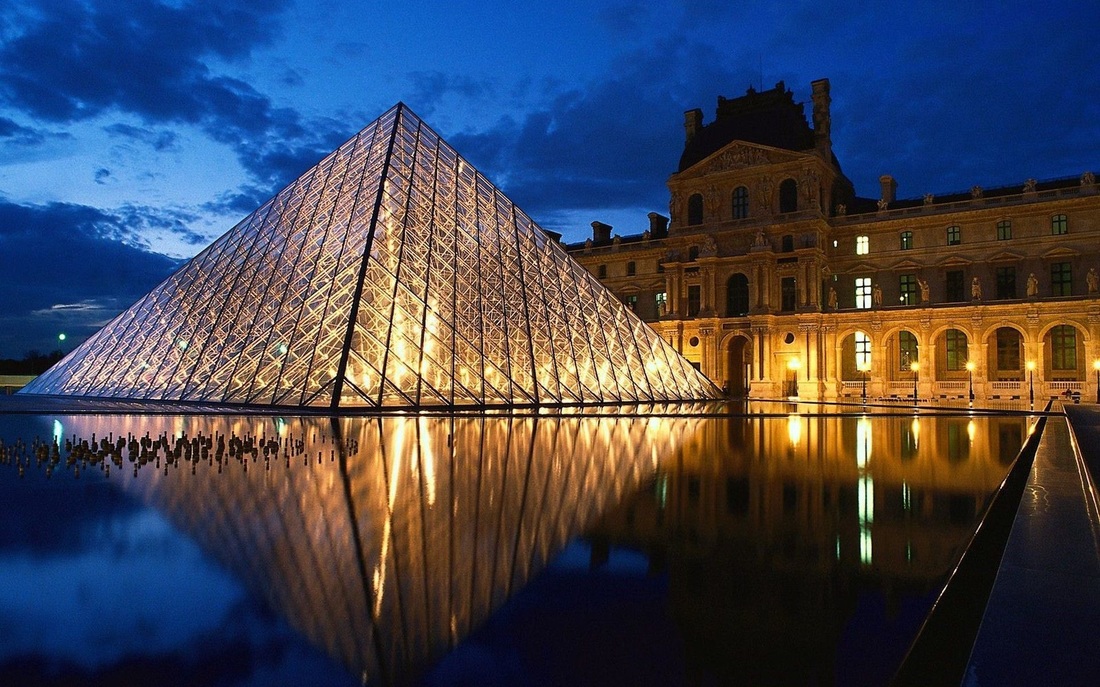Later I traveled with a colleague and a school group, and another time I took my husband, daughter and my father. It was a magical trip that we will always remember. We delighted in walking the city and seeing the sites. I'd found a charming boutique hotel near the Centre Pompidou. We especially enjoyed the City Museum of Paris (free) with artifacts dating back to prehistoric Paris and the Archaeological museum that sits in front of Notre Dame where you can see the Roman remains of the city that have been excavated. We could not have had a better time.
Paris is a city that has often been besieged with violence and bloodshed. In the sixteenth century, the Seine ran red with blood as Catholics and Protestants battled over religious reform and freedom. In 1572, the St. Bartholomew Day's Massacres started with an attack at the wedding of Princess Margaret and Henry of Navarre (a Protestant who converted to Catholicism so as to gain access to the French throne). This led to days of slaughter in the city, with a couple of thousand Calvinists being killed, and weeks of fighting in the countryside. Over 10,000 perished in these attacks though the two sides signed a truce, The Edict of Nantes (later revoked in the 17th century). Of course, bloodshed and hysteria of a different kind would seize Paris in the 18th century with the revolutionary fervor of the "Committee of Public Safety" under the helm of the radical Robespierre. He ironically fell victim to the guillotine himself, declared an enemy of the revolution he helped to usher in, but not before 40,000 people had been executed. In the 19th century on more than one occasion the French people took to the streets to demand democratic rights--incidents made famous in "Les Miserables." Of course, during World War Two, the Nazis marched into Paris and set up a collaborative government known as Vichy. Jews were targeted and betrayed and many French were disgusted with the compromises their peers and politicians made to appease the voracious hatred of the Nazi regime. In 1968, students and union workers took to the streets again to protest government policies and demand more rights and allowances. As one French writer put it, "in the U.S. the people fear the government, in France, the government fears the people."
All of the above history aside, Parisians and citizens of the world are reeling from this unwarranted attack on innocent people. As a teacher and a historian, I understand the need to study cultures and traditions, however there is no excuse for the behavior the world witnessed yesterday. If your religious values are so easily shaken by a satirical cartoon, then you need to re-examine your beliefs. Of course there are larger issues as well, but it is tragic when the values of a few--values which are often based on misconceptions--impact the lives of so many. Not only will the victims and their friends and families suffer, but so will many more who are caught in the crossfire of retaliatory military action. How do we deal with such realities? A few suggestions, offered with humility and hope:
- Religion should be personal and private. Keep it to yourself. The state of someone else's soul is their business. Period.
- Believe it or not, the world has gotten less violent. Check out Steven Pinker's Ted Talk: https://www.ted.com/talks/steven_pinker_on_the_myth_of_violence?language=en
- Hug your loved ones, be thankful for their safety. My brother was set to go on his first overseas trip to London and Paris this weekend. That has been put on hold.
- Soften your own edges. It is easy to be hateful and rigid. Compassion and flexibility are much tougher. Cultivate them. Rigidity makes for fanaticism.
- Read, watch, listen to something uplifting. Some cool jazz from 1920's Paris, the Woody Allen "Midnight in Paris" or the memoirs of Julia Child. Cherish what this city has fostered in terms of great music, art, literature and food.
Lisabeth

 RSS Feed
RSS Feed